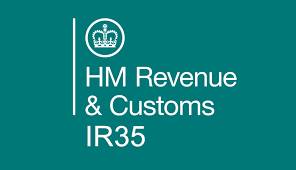
IR35 Contractor Newsletter
Off Payroll Working Legislation (IR35) April 2021
We are writing to let you know that we are now working with our various clients in order to obtain determinations on behalf of our limited company (Personal Service Company, or PSC) workers ahead of the April 2021 roll out of the above legislation.Government information can be found here:
https://www.gov.uk/guidance/ir35-what-to-do-if-it-applies
What is IR35?
IR35 (also known as the off payroll working rules) has been around for over 20 years now and is a piece of legislation designed so that if a limited company worker is working under the same conditions as an employee, he or she will pay broadly the same PAYE and National Insurance (NI) as an employee.And because the limited company is the employer, it must also contribute employers’ NI.
Workers under this arrangement are referred to as being ‘in scope’ of IR35.
Historically, contingent workers working through a PSC have themselves been responsible for determining whether or not their assignment falls inside IR35, but from April 2021, changes to the rules in the private sector will transfer responsibility to the recipient of the worker’s service, known as the end hirer, or client.
There will be a significant financial and reputational impact for any organisation that does not follow the new rules, and the reform will affect all but those end hirers subject to the small company exemption.
What does this mean for you?
If the end hirer meets the small company exemption, it remains the responsibility of the PSC to determine IR35, exactly as is the case now.The end hirer will determine if they fit the criteria to meet the exemption and if they do, nothing need change; responsibility for determining your status will continue to sit with you.
If your hirer does not fit the small company exemption and your role is assessed and found to be out of scope of IR35, nothing need change; you can continue to operate through your PSC, and MPI will continue to make gross payments.It is anticipated that hiring clients will carry out periodic assessments to ensure that a role remains out of scope, and will notify MPI of any changes.
If your role is found by the client to be in scope of IR35, neither MPI nor any other agency will be able to make gross payments to your PSC – but there are other options available to you:
If my assignment is determined to be in-scope, will I have to close down my PSC?
If you want to continue to use your PSC, you can do so - but your fee per hour will reduce to the in-scope rate, in order to take into account Employers NI and apprenticeship levy (currently, this is included in the rate paid to the PSC but from April, MPI will have to pay it directly to HMRC). The net result of this would then be subject to PAYE and Employee’s NI, which would also be paid directly to HMRC. The remainder, along with any applicable VAT, would be paid to your PSC.
Is it still worth having/running a PSC?
Potentially yes.If you are working for lots of different companies and agencies and incurring claimable expenses then it could make sense to continue running your company, since tax paid via deduction could be subject to adjustment at tax return stage. MPI can’t comment on your personal circumstances, though, so we recommend that you take advice from your accountant in the normal way.
Should you use our in-house PAYE scheme?
Definitely an option. The PAYE rate is lower, but this is because when our client pays us for your services per hour or per day, all associated employer costs are included in your rate (holiday pay, Employer’s National Insurance, pension, etc), and when you work through your PSC these elements are passed along to you in your fee - because your PSC becomes responsible for these costs. Bear in mind that if you go PAYE, you will still receive some of these elements personally (holiday pay and pension), so the rate isn’t as low as it first seems. PAYE could work well for contractors who are in a long-term role and not moving around, as there will be no costs to them and holiday pay and pension will remain in the same place.
Is it better to use an Umbrella company?
MPI operates a preferred supplier list (PSL) of PAYE umbrella companies, details listed at the foot of this newsletter, and also on our website. The fee we would pay to your elected provider would remain as it is now. However, gross monies paid would be subject by the umbrella company to the associated employer costs, and the net result would then be subject to the same taxes as our in-house PAYE scheme – and you would also need to pay a fee to the umbrella company.
The main benefit of using an umbrella company would be that when working for lots of different companies/agencies the payments would all be held in one place, one pension pot and holiday pay with no accountancy costs, just the weekly fee of the umbrella company. You also have the option with an umbrella company to ‘roll up’ your holiday into your pay each week, something agencies aren’t allowed to do.This would give you greater flexibility to choose between higher weekly pay with less paid holiday, or vice versa.
We have negotiated preferential rates with those on our list, so do remember to mention that you are working through MPI.
Rate Breakdown
Using tax year 2020/2021 PAYE and NI thresholds, and based on a limited company rate of £20.00 per hour, the example below demonstrates how MPI builds up from our in-house PAYE rate to reach the ltd company rate, taking into consideration the various employer costs, and based on annual leave of 28 days:
£ 15.68 PAYE Rate
£ 0.44 Employer’s pension contribution
£ 1.89 Holiday accrual
(£18.01 In-Scope PSC rate)
£ 1.90 Employer’s National Insurance
£0.09 Apprenticeship Levy
£ 20.00 Limited Rate
In the above example, for each available option, the gross rate payable by MPI would be:
PAYE: £15.68. PAYE and NI would be deducted but holiday and pension would be included in your package as detailed above.
In-Scope through your PSC: £18.01 per hour; you would receive all of the above except the Employer’s NI and Apprenticeship Levy, because MPI would need to directly account for this to HMRC.The remainder would then be subject to PAYE and employee’s NI.
Umbrella: £20.00.The umbrella company would subsequently deduct all the above-mentioned employer costs, before then applying PAYE and NI to the remainder.A fee would also be payable to the umbrella company.
Once our client has informed us of your personal determination we will write to you again and will include the rates applicable to you for each of the options listed above.
We believe that our clients are applying a fair and consistent approach to determine the outcome for contingent workers impacted by these reforms.However, there are likely to be occasions where contingent workers do not agree with the outcome of their assessment, and HMRC have allowed for an appeals process in the legislation.Information on this can be found here:
https://www.gov.uk/guidance/april-2020-changes-to-off-payroll-working-for-intermediaries
Although not all of our clients will have used the Government tool, you may find it useful in order to carry out your own determination in readiness to compare with the one you receive from
our client.The tool can be found here:
https://www.gov.uk/guidance/check-employment-status-for-tax .
